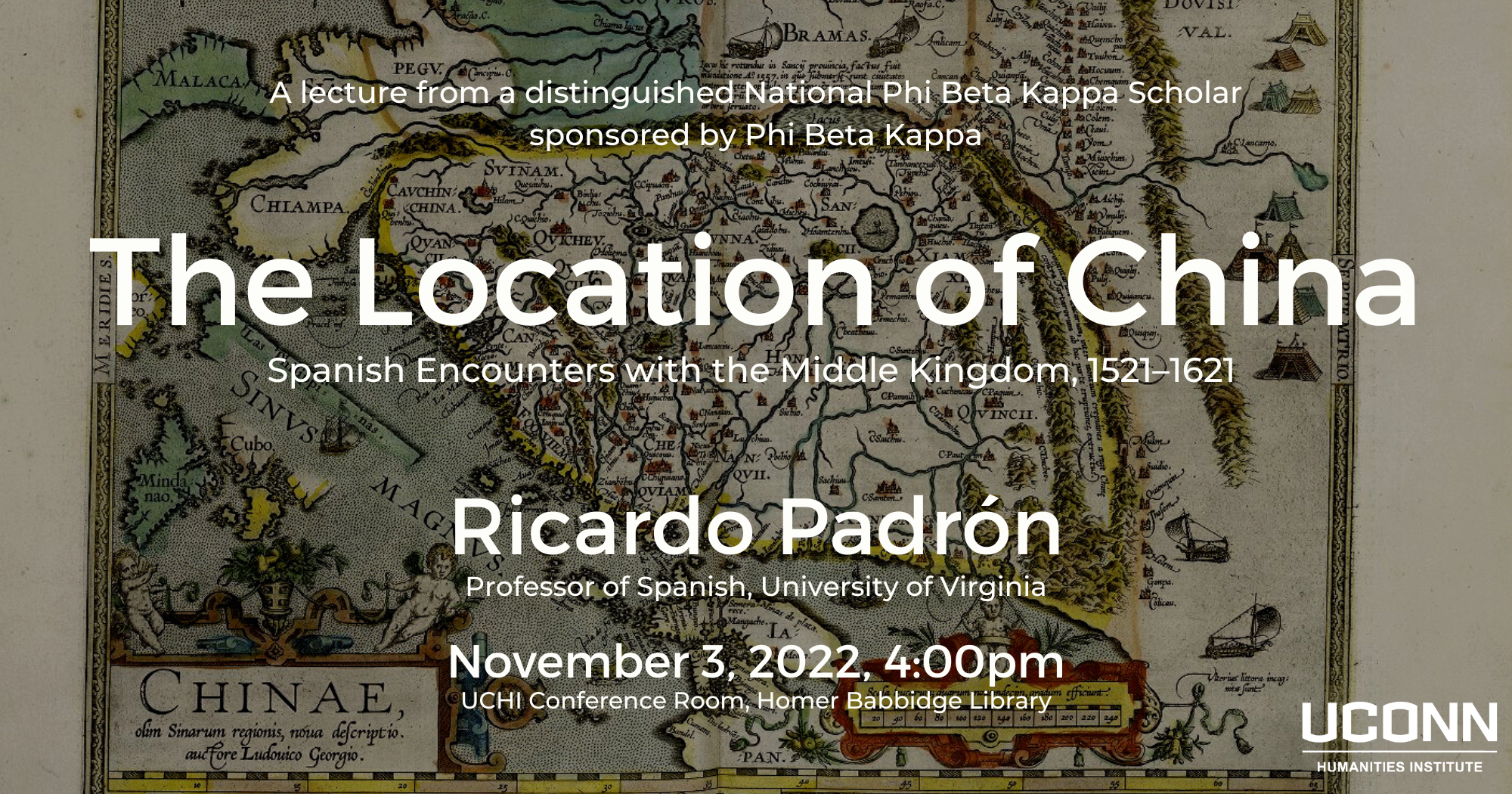
If you require accommodation to attend this event, please contact us at uchi@uconn.edu or by phone (860) 486-9057. We can request ASL interpreting, computer-assisted real time transcription, and other accommodations offered by the Center for Students with Disabilities.
A lecture from a distinguished National Phi Beta Kappa Scholar sponsored by Phi Beta Kappa:
The Location of China: Spanish Encounters with the Middle Kingdom, 1521–1621
Ricardo Padrón
November 3, 2022, 4:00pm
Homer Babbidge Library, Humanities Institute Conference Room
This event will also be livestreamed with automated captioning. Register to attend virtually.
Spain’s colonization of the Philippine Islands led to an encounter with Ming China that was somewhat different from those experienced by the Portuguese and the Jesuits, one that generated questions about the location of China both in the geography of the globe and in the emerging hierarchy of the world’s cultures, as imagined from Europe. Were the Chinese as civilized as they seemed to be? Or were they just another version of the “barbarian” countries that the Spanish had already conquered in Mexico and Peru? What did it mean to be civilized anyway, and how could one tell? In this lecture, I introduce this little-known episode in the history of early modern European, arguing that it was the nature of Chinese government, not religion, that proved to be crucial.
In addition to the talk sponsored by Phi Beta Kappa, Ricardo Padrón will be giving a talk hosted by UVA’s Institute of the Humanities & Global Cultures
The Indies of the Setting Sun: How Early Modern Spain Mapped the Far East as the Transpacific West
Ricardo Padrón
November 4, 2022, 10:00–11:30am
Homer Babbidge Library, Humanities Institute Conference Room
This event will also be livestreamed. Register to attend virtually.
The Indies of the Setting Sun: How Early Modern Spain Mapped the Far East as the Transpacific West (Chicago 2020) examines the place of Pacific and Asia in the Spanish concept of “the Indies.” Padrón’s research for this book has taken him to China, Japan, and the Philippines, and has been sponsored by U.Va.’s Center for Global Inquiry and Innovation, Arts & Sciences at U.Va., and the National Endowment for the Humanities.
Ricardo Padrón is a specialist in the literature and culture of the early modern Hispanic world who has published extensively on questions of empire, literature, cartography, and the geopolitical imagination. His 2004 book, The Spacious Word: Cartography, Literature and Empire in Early Modern Spain, has become a touchstone for the study of early modern Hispanic cartography. His recent monograph, The Indies of the Setting Sun: How Early Modern Spain Mapped the Far East as the Transpacific West (2020) challenges established narratives of “the invention of America” by looking at the various ways that sixteenth century Spaniards attempted to imagine the New World and Asia as connected spaces. His work has been supported by the American Council of Learned Societies and the National Endowment for the Humanities. He is currently serving on the Board of Directors of the Renaissance Society of America.

